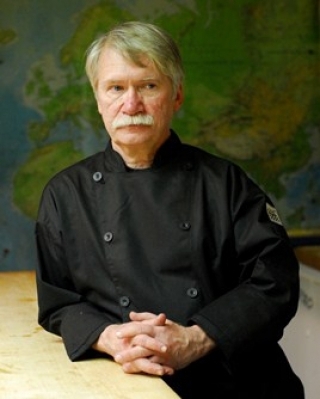
Historical Tools at Your Disposal
01 December 2022Don’t forget your experiences and those of others who came before when teaching culinary arts.
By Paul Sorgule, MS, AAC
Feedback & comments: This email address is being protected from spambots. You need JavaScript enabled to view it.
We are familiar with the phrase, “What goes around, comes around.” It is a reminder to never forget what was done successfully, who has been successful, or what may have once been in style. These things are worthy of reconsideration. The truth associated with this statement may be selective, but never losing sight of what came before can most certainly provide numerous teaching and learning moments.
After all, this is why we continue to teach the foundations and pay respect to the chefs, restaurateurs and educators who came before us. We should always keep an open mind as to the lessons learned. But is this wise? Should we continue to invest in what was as we plan for what might be?
According to the University of Wisconsin History Department:
“History gives us the tools to analyze and explain problems in the past, it positions us to see patterns that might otherwise be invisible in the present – thus providing a crucial perspective for understanding (and solving!) current and future problems.”
Understanding and reflecting on cooking history, early innovators’ influences and culinary traditions can provide ideas and solutions to challenges faced today. Chefs and culinary educators have great opportunities knowing that today’s problems may very well be solved with yesterday’s understanding.
If this resonates with you, then think about the following realities from the past that might be very useful now.
At a time when online education delivery is growing in popularity and influence, history points to the relevance of tactile learning. Unless we can figure out how to truly replicate the tactile education experience through online delivery, it will be difficult to compare it as equal or better.
Very few things can measure up to real-life experiences when it comes to learning. Tell me – Show me – Engage me. We all know this without question. It is wise to reflect on this reality if a teacher is having difficulty keeping students focused. Build those experiences into your program and course – make learning real.
“The foundations of cooking will never serve you wrong.”
- paraphrased from the traditional understanding
Of course, we should expose culinary students to the latest kitchen technologies and interesting new methods of preparation and presentation. We should also never lose sight of the fact most restaurant customers respond well to classic preparations and presentations which are part of their lives. Teach this first and provide your students with the tools of understanding to incorporate what comes next.
Whatever you choose to teach, remember that throughout time restaurants have been driven by the concept of service. This is the business we are in and “yes” is the most sought-after answer.
Discipline, as part of learning, should not be viewed in a negative light. Abuse of discipline should certainly not be part of classroom or kitchen management approaches. Ironically, many - maybe most - people respond well to a certain discipline level. They become comfortable with standards and expectations as well as a system that holds them accountable. The system must make sense, be fair and be administered consistently. This is also a good rule for parenting.
Are you having a difficult time holding students’ attention, keeping order in your classroom, ensuring each student stays on task, and seeing positive performance results? Try stepping back in time and studying the positive aspects of uniform, grooming, respect for the chain of command, professional approach to others, staying true to standards of excellence, and learning how to respect and use critique. It may not be student focus that’s the challenge you face. It may simply be a lack of a consistent discipline system (not punishment).
We can learn from what has been and store it in our personal database where it will always be available for problem-solving. We saw what led up to a past action or process, learned how it worked, and experienced the results. What a fantastic tool at our disposal.
“We will not grow from our experiences if we don't understand them (and use them).”
-Source unknown
These may be old ideas, but they still hold true. When faced with the challenges of today, take a moment to reflect on what and who came before. There are lessons to be learned from the experiences we or others have had. Understand and use them in the classroom as they are still relevant.
PLAN BETTER – TRAIN HARDER
Don’t forget your experiences and those of others who came before.
Paul Sorgule, MS, AAC, president of Harvest America Ventures, a mobile restaurant incubator based in Saranac Lake, N.Y., is the former vice president of New England Culinary Institute and a former dean at Paul Smith’s College. Contact him at This email address is being protected from spambots. You need JavaScript enabled to view it..
